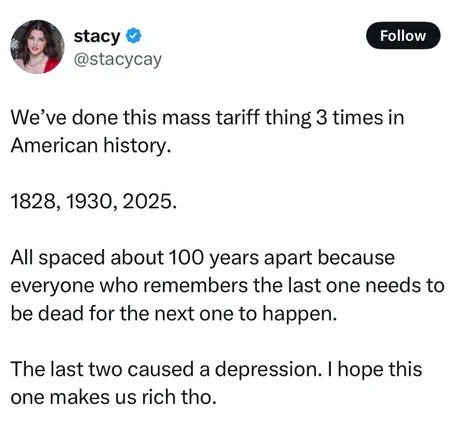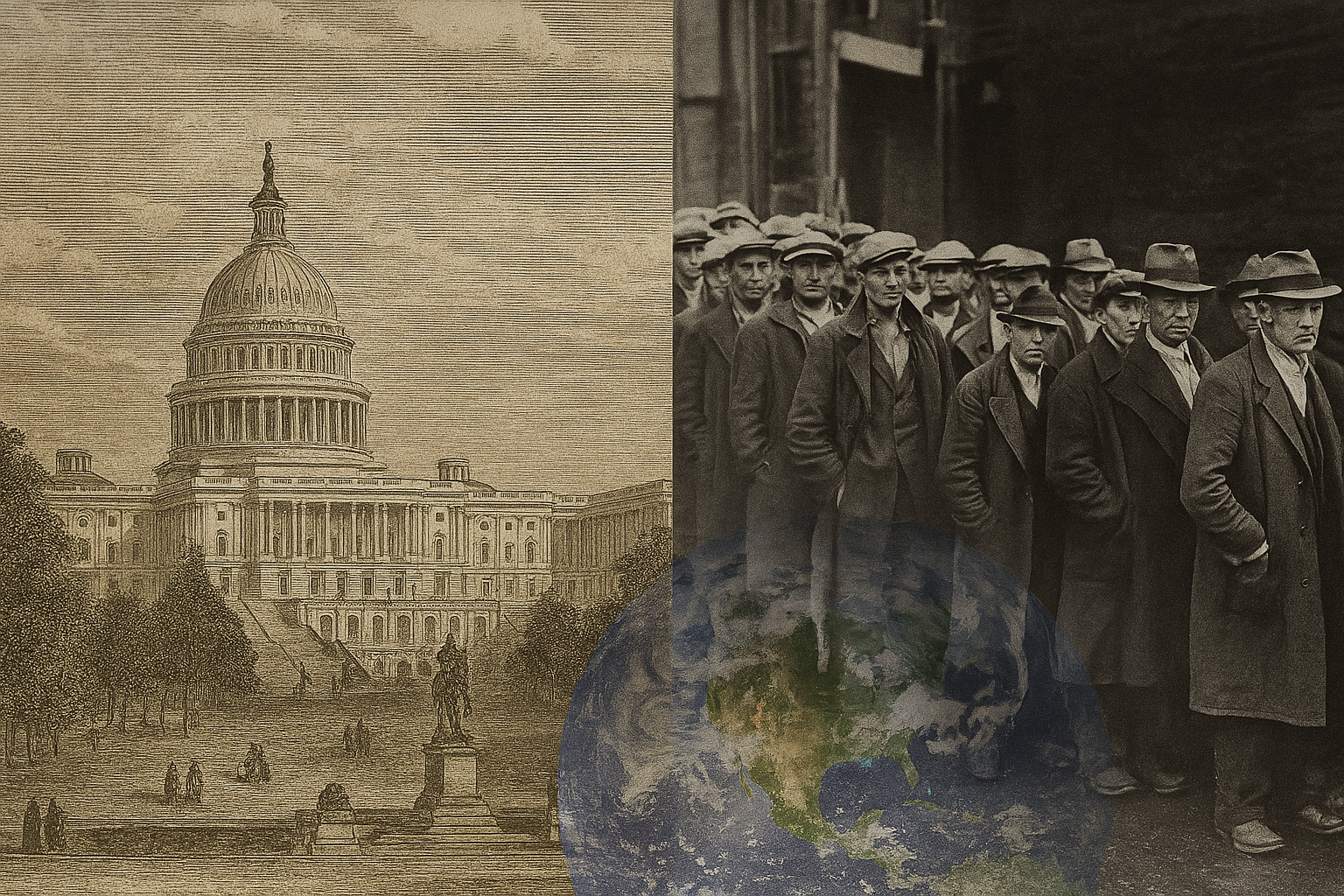There is a meme going around.

Obviously, it’s attacking Trump’s tariffs. The left and moderate Republicans have opposed them from the start as have many libertarians, but more remarkably, many traditional conservatives—and now even a few MAGA loyalists—have started questioning them.
But is it accurate?
Well, kind of. It's not as far off as you might assume, but there is always room for nuance and context.
The 1930 tariff might be the one more applicable to our current situation, so we'll start there. It refers to the Smoot-Hawley Tariff Act, and historians and economists are nearly unanimous: it didn’t help—it hurt. Badly. It amplified and prolonged the Depression, turning it from what was arguably a simple recession (albeit a big one) into the Great Depression.
The argument behind it was basically the same one Trump is using now: protect U.S. industry, bring production home, stick it to foreign competitors. It was signed into law in June of that year and raised tariffs on over 20,000 goods.
Did it work? Well, if your definition of "success" includes achieving the opposite of what you wanted, then sure. Otherwise, no—it was an abject failure. The initial results were that major trade partners like Canada, France, and others immediately slapped their own tariffs on American goods. Just like now! Who ever said history doesn't rhyme, eh?
The longer-term effects were devastating: global trade collapsed by about two-thirds between 1929 and 1934. This was catastrophic in an already fragile economic environment. Unemployment in the U.S. jumped from 8.7% in 1930 to 25% by 1933—and it was even worse in many other countries. And yes, U.S. tariffs hit the entire world. A trade war never has just one victim. The Depression spread to the world, becoming the Great Depression, and leading to all kinds of bad things.
So while we can’t blame the Depression entirely on the tariffs, they definitely threw gasoline on the fire and kept it burning longer.

The 1828 depression was fairly similar. We can't really call it a depression in the same way as the Great Depression; it was more a series of economic downturns that led to a bank panic in 1837 and political instability for much of the 30s.
I won't go into the details, but it was called the Tariff of 1828, nicknamed the Tariff of Abominations by the South. It was intended to protect Northern industry, but it really hurt the South which relied on imported goods and raw materials.
In theory, tariffs can have positive effects, if used tactically: in other words, they are surgical tools, not sledgehammers. When they are used en masse and bluntly as Trump is using them, historically they tend to lead to negative economic effects—both short-term (as the Trump people admit) and long-term (which is opposite all MAGA pundit rhetoric).
Using tariffs bluntly can appeal to populism, making them a favorite tool of demagogues, but they rarely have positive results and usually hurt the very people who support them (the working class) the most.
![][divider]
So, the meme? Mostly right, but like all good memes, it condenses a messy truth into a clean punchline. The history doesn’t say tariffs always fail (when used tactically). But it absolutely warns us that using them bluntly, vengefully, or for political theater has a long track record of backfiring. Whether 2025 ends up echoing 1930 and 1828 or not is still up in the air—but it ain't looking too good so far.
❦


